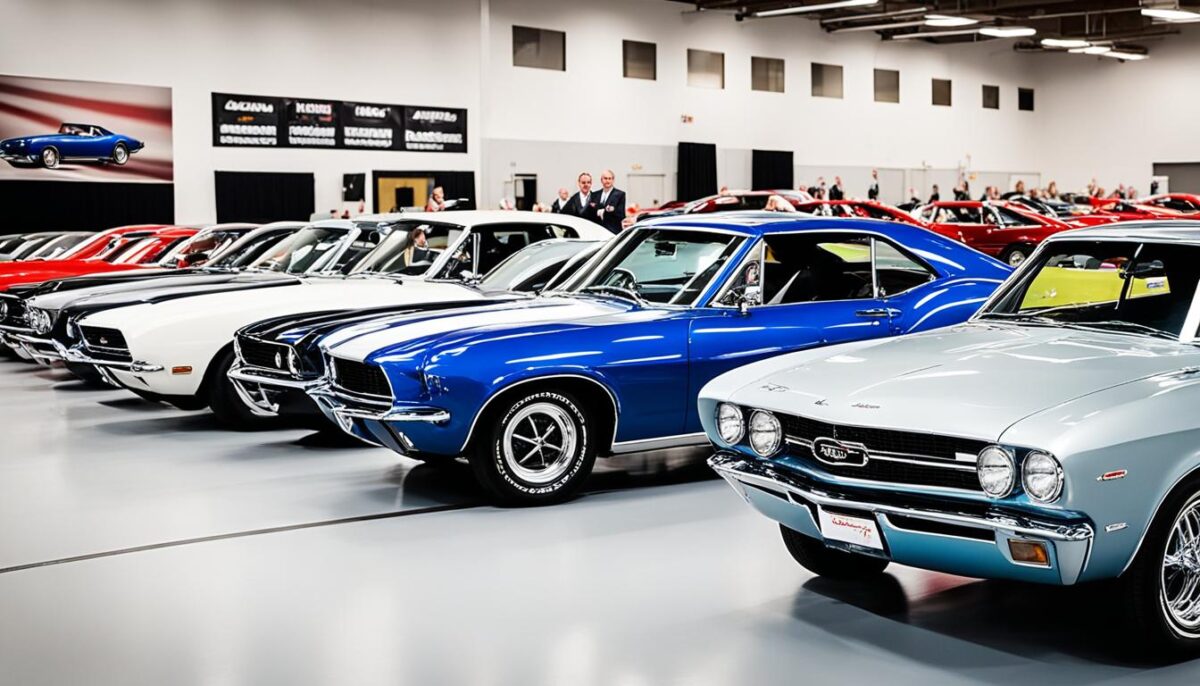Welcome to our comprehensive Auction Glossary, where we aim to demystify the world of car auctions for beginners. If you’re stepping into this exciting arena for the first time, you might find the jargon a bit overwhelming. That’s where we come in! Our carefully curated guide will break down essential Car Auction Terms and provide definitions that will empower you to navigate your first auction with confidence.
From understanding the role of a bidder to decoding the significance of a reserve price, we’re here to help you build a solid foundation. With this Beginners Guide to Car Auctions, we want you to feel informed and prepared, making the entire experience enjoyable rather than intimidating.
Understanding the Basics of Car Auctions
In exploring the world of car auctions, we begin by addressing a fundamental question: what is a car auction? A car auction serves as an alternative marketplace for purchasing vehicles, distinct from traditional buying methods. This environment fosters competition among bidders, often resulting in lower prices for high-demand cars.
What is a Car Auction?
Car auction explained, it is a process where individuals can buy vehicles in a competitive setting. Bidders place their offers, and the auctioneer facilitates the transaction, guiding the process as bids escalate. The excitement of live auctions draws people in, while online car auctions offer greater convenience for those looking to participate without the need to attend in person.
Types of Car Auctions We Encounter
In our introduction to car auctions, we identify various types of car auctions that cater to different preferences. These include:
- Live auctions – where participants gather in a physical space to bid on cars.
- Online car auctions – allowing bidders to participate from anywhere with an internet connection.
- Dealer auctions – primarily geared towards automotive dealers looking to buy or sell inventory.
- Public auctions – open to everyone, these auctions can feature a range of vehicles from various sources.
- Specialty auctions – focusing on specific categories, such as classic cars or salvaged vehicles.
How Car Auctions Work
Understanding the car auction process is essential for prospective buyers. We will outline the typical steps, from initial registration to the final bid. The bidding process generally includes:
- Pre-registration – ensuring bidders are qualified to participate.
- Vehicle inspection – allowing bidders to evaluate cars before placing bids.
- Live or remote bidding – where bidders can place offers based on their assessment.
- The role of the auctioneer – who manages the flow of the auction and keeps track of bids.
- Understanding timelines – critical for knowing how long the auction lasts and key moments.

With a clear picture of how car auctions function, we position ourselves to engage effectively in this dynamic marketplace. Embracing the various types of car auctions will help us navigate the options available and make informed decisions when bidding for our next vehicle.
Key Terms in Our Auction Glossary
As we delve further into the world of car auctions, it’s essential to familiarize ourselves with some key terminology. Understanding these terms can greatly enhance our experience and effectiveness as participants in the auction process. Let’s explore a few crucial definitions that will guide us through our auction journey.
Bidder
A bidder is an individual or entity interested in acquiring a vehicle during an auction. Bidder definition varies slightly across different auction formats, but essentially, anyone wishing to participate must typically register as a bidder. This registration process often includes identity verification and possibly a deposit, especially in competitive auctions. Bidding in car auctions requires knowledge of the auction environment and the vehicles on offer, allowing bidders to make informed decisions.
Reserve Price
The reserve price is the minimum price that a seller is willing to accept for their car at auction. Understanding reserve price definition is crucial for bidders, as it dictates whether a vehicle will be sold or not. Auctions with reserve maintain this price to encourage serious bidding while protecting the seller’s interests. By grasping the reserve price explanation, we can be more strategic in our bidding approach, knowing when to cease bidding or persist.
Lot Number
A lot number is a unique identifier assigned to each vehicle at auction. Knowing the lot number meaning helps us track and organize the cars we’re interested in. Car auction lot numbers streamline the process, making it easier to reference specific vehicles amidst a large inventory. Understanding how lot numbers work is beneficial for ensuring we don’t miss opportunities during the auction.
Buyer’s Premium
The buyer’s premium is an additional fee applied to the final bid price, often representing a percentage of the winning bid. This fee, sometimes termed auction buyer’s fees, is charged by the auction house, making it essential for us to account for in our overall budget. By fully grasping the buyer’s premium explanation, we can avoid any surprises after winning a bid and better prepare ourselves for the total cost of acquiring our desired vehicle.
